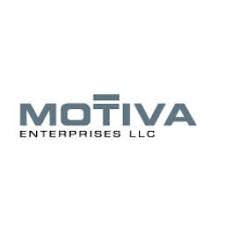In 2024, we're not just keeping pace with innovation; we're growth hacking it.
Where management consulting meets startup agility.
A Legacy of Innovation Growth Hacking Managed Innovation Thought Leadership Strategic Thinking Innovation Future Insights Solution Integrity Innovation
Crafting Bespoke
Solutions to
Propel Your
Success
At CTGS, we pride ourselves on delivering handcrafted solutions that are tailored to your unique requirements. Leveraging innovative technologies, we ensure our services align perfectly with your needs, providing unmatched results.

Tailored Playbooks for Every Client
Each client is unique, and we work closely with you to create customized playbook that align perfectly with your goals, governance, and growth.
Experience Across Industries
With our diverse portfolio, we have the expertise to tackle projects in various industries, allowing us to anticipate challenges and seize opportunities.
Efficient and Cost-Effective Solutions
Our lean and agile approach ensures that our services are efficient and cost-effective, providing you with the best value for your investment.
Transforming Industries with Innovative Solutions
At CTGS, we have a proven track record of delivering groundbreaking solutions that have revolutionized industries. With over 20 years of experience, we have consistently exceeded our clients' expectations, providing them with custom-tailored solutions that drive success. Our innovative approach, combined with our expertise across various sectors, makes us the ideal partner for your next project.
Founded
0
Decisions
0
x
Compromise on Quality
0
Satisfaction
0
%
a journey of growth and innovation, and discover limitless possibilities.
We Bring Innovation Transformation Excellence Vision Momentum to you at scale.

























Expertise
Innovation

Embarking on an adventure to revolutionize e-commerce, we navigated through the unknown, using innovation and technology as our compass. In this new world, "Staples as a Service" emerged, a testament to our ability to harness the power of data science and artificial intelligence, crafting a path where others saw none, and leading Staples into a future filled with growth and opportunity.

With precision and expertise, we orchestrated a plan to navigate the complex landscape of cloud adoption. Like master strategists, we assessed every angle, implemented a flawless strategy across eight key domains, and executed with the stealth and efficiency of a seasoned crew, transforming Freddie Mac's infrastructure into a model of innovation and efficiency.

When we were brought in to assist with a project during the complex divestiture between Motiva and Shell, our team embraced the challenge with determination and innovative spirit. Facing the inherent difficulties of divestiture, we enhanced collaboration and refined processes to steer the project back on track. Our strategic adjustments not only rescued the initiative but also accelerated its progress, turning potential setbacks into a success story. This effort mirrored skillful navigation through a storm to reach the tranquility of safe harbor.

In an undertaking of monumental scale, we embarked on a legacy modernization project, a quest to transform the technological landscape across continents. Guided by foresight and united by a common goal, we overcame obstacles, forged alliances, and delivered solutions that resonated across the realm of State Farm, achieving victory in a campaign of innovation and change.

In the vast expanse of healthcare technology, we laid the foundations for a utopia, a place where efficiency and savings coexist. Through a meticulous governance model and strategic consolidations, we saved millions, proving that even in the complex world of healthcare, innovation can lead to a brighter, more efficient future.

Like wizards weaving magic, we conjured a real-time digital dashboard for CVS, transforming data into actionable insights with a flick of our wand. This innovation not only enchanted decision-making processes but also laid the groundwork for a future where technology and health care merge in harmony, creating a healthier world for all.

In the spirit of a phoenix, Hireaction rose from the entrepreneurial flames, a creation born from vision and resilience. As its founder, I steered it through the fires of startup challenges, emerging not just unscathed but soaring, leaving a trail of innovation and new possibilities in the recruitment sector, a testament to the power of rebirth and relentless ambition.

In the forge of Sun Microsystems, we were blacksmiths of technology, shaping the raw materials of Java and enterprise solutions into tools and weapons for the digital age. Our craftsmanship not only fortified the technological landscape but also laid down the keystones of future innovation, echoing the timeless art of creation and the power of foresight.

Facing a labyrinth of operational and budgetary challenges, we embarked on a quest within Shell Oil / Motiva to untangle the maze. With strategic acumen and a torch of innovation, we illuminated paths to efficiency and collaboration, navigating through twists and turns to emerge victorious, transforming chaos into order and adversity into opportunity.

Setting sail on a voyage with Amway, we discovered uncharted territories of customer satisfaction and operational efficiency. Like explorers of old, we navigated through the rough seas of business challenges, guided by stars of innovation and strategy. Our journey not only charted new courses for Amway but also left a map for others to follow, marking the way to treasures of growth and satisfaction.